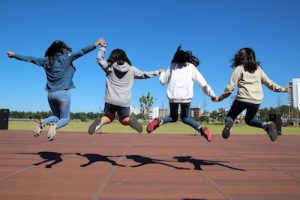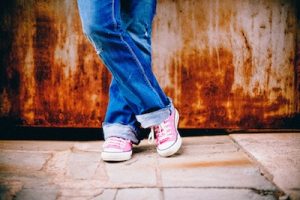Child & Adolescent Psychologists – Edmonton
Psychological Therapy for Children & Teens
Registered Psychological Treatment – Child & Adolescent – Edmonton & area.
Children, youth, and adolescents experience the world differently from adults. Children and youth in particular experience a lot of “firsts” on a regular basis and since they’re still learning how to process their feelings, these experiences can be which can be overwhelming. They’re in the vulnerable position of not knowing how to handle their feelings.
Counselling for Children & Adolescents
Edmonton Child Psychologists
780-628-5446
2307 – 90B Street SW Edmonton
click for Directions
*just off of Ellerslie Road on 91 St. – Located in Summerside
Registered Psychologists – Edmonton (South)
Book an Appointment Online
Children see the world from a different perspective and the way we help guide them through their emotions is much different from how we treat adults. Their everyday experiences can impact their wellbeing,

like:
- Bullying or peer pressure
- Learning difficulties
- Family dynamics, like sibling relationships
- Sexual identity
- Arguments with friends
That’s not to say children can’t also experience real trauma that can have a massive impact on their mental health.
Experiences that could be potentially traumatic for your child:
- Parental divorce or separation
- Adoption
- A loss of a close relative, like a grandparent
- Abuse of any kind – verbal, physical or sexual
- A move that disrupts their routine (to another school or city, for example)
Every child deserves to live an emotionally healthy life. Helping them deal with their emotions now will also help them deal with life in a healthy way as they transition into adulthood. A psychologist can work with your child to teach them skills they can use in daily life.
When should you take your child to therapy?
Seeing a psychologist is good at any time, but pay special attention to when your child is showing any of the following signs:
- They aren’t sleeping like they used to – they have nightmares, trouble falling asleep, and are tired throughout the day
- They have a hard time focusing
- They don’t enjoy activities they used to or generally uninterested in the world around them
- They seem lost with no purpose or direction
- Their mood or behaviour changes
- They’re having trouble at school – suddenly getting into trouble or sudden changes in their grades
- They’re suddenly overeating or have lost their appetite
- They’re self-harming or using drugs (using unprescribed prescription drugs included)
Why Boost Psychology?
We’re a group of psychologists with diverse specialties and some members of our team specialize in child psychology. Seeing someone who works specifically with children and has the training to support their work is important. Different age groups usually require different therapy strategies, depending on where they are developmentally.
Our number one goal is for your child to feel safe while they’re here. We’ve made our south Edmonton office a comfortable and beautiful space.

Adolescent & Child Psychologists – Edmonton
Psychological Treatment for Teens
780-628-5446
2307 – 90B Street SW Edmonton
Children’s Therapy – Registered Psychologists
click for Directions
*just off of Ellerslie Road on 91 St. – Located in Summerside
Book an Appointment Online
Frequently Asked Questions:
What should I expect on the first visit?
This visit is all about making the child feel comfortable in the environment and starting to build a trusting relationship between them and their psychologist. Before the first visit, the psychologist will want to talk to you to get information about what circumstances led to you bringing your child in and general background about them. They will speak about the consent piece of therapy. For children under 18 years old, consent from both guardians is required.
What kind of support will my child get?
Fundamentally, we want your child to build resilience in a healthy way and will guide them through those processes. Resilience takes many forms, like good self-esteem, humour, finding and participating in hobbies they like, among many other things.
Do you address technology use? It’s become a big topic in our household.
Absolutely! We, as adults, didn’t grow up with much technology around, so seeing our children be exposed to so much of it can be overwhelming and unnerving. We see a decline in social skills, language skills, overstimulation of the brain, and cyberbullying. We can work through ways you can reduce the use of technology in your home so that your children have a break from it and learn to create healthy boundaries.
Are there tools for me as a parent?
Yes! These sessions aren’t just beneficial for your child. You’ll walk away from sessions knowing more about what healthy child/parent relationships look like and how to build them. We practice activities in the sessions to encourage connection that will carry through into your home life. We also provide supportive parenting tips related to the issues you’re experiencing.
In addition to supporting during child psychology sessions, Boost Psychology provides a variety of services for adults, including couples therapy, divorce or breakup, anxiety, depression, grief, stress, and life transitions. Take a look at our website to see what some of our team offers. Give our office a call today to discuss your options and work towards creating a healthier you.
Child & Adolescent Psychologists – Edmonton
Child & Teen Counselling
780-628-5446
2307 – 90B Street SW Edmonton
Therapy for Youth – Registered Psychologists
click for Directions
*just off of Ellerslie Road on 91 St. – Located in Summerside
Book an Appointment Online
Author:
